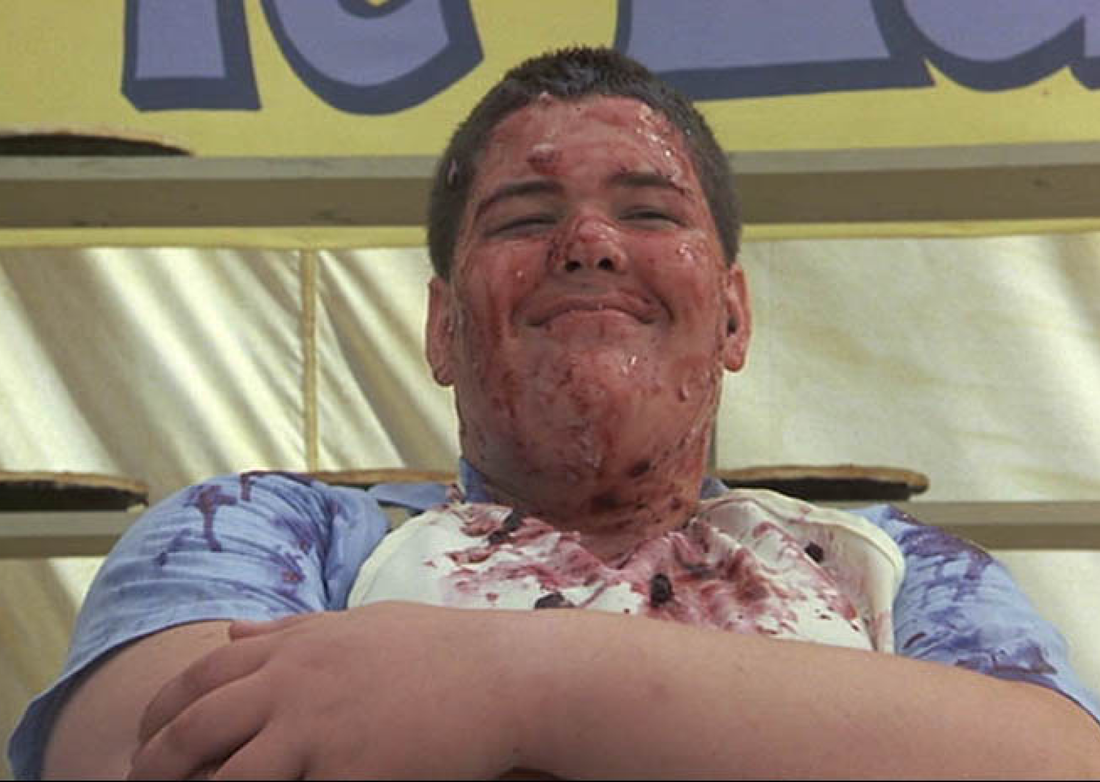BY
|
GLUTTONY has for a long time been considered a deadly sin, something not to be proud of, and certainly something to not be celebrated. This notion has been transferred to Hollywood too. Gluttony is judged in WILLY WONKA & THE CHOCOLATE FACTORY (Mel Stuart 1971) where its negative impact upon society is dramatised; in SE7EN (David Fincher 1995) gluttony leads to death. The Stephen King adaptation STAND BY ME offers a departure from this, seemingly celebrating the gross and condemning the people who victimise it.
The scene in question begins with Will Wheaton’s Gordie delivering a story around a campfire. The tale is of revenge by one boy nicknamed “Lardass” (Andy Lindberg). He wants to fight back against his judgemental town and make them suffer. He plans to achieve this by taking part in a pie-eating contest, something he is clearly renowned for but fed up of. Prior to the contest we see the boy drink a whole bottle of castor oil and eat an egg, with the obvious intention of using his gluttony for retribution. The subsequent scenes are highly grotesque and show the boy “barfing” everywhere, which in turn makes everyone else feel sick and so, as planned, havoc ensues. Interestingly, this scene turns the previous understanding of gluttony on its head. Instead of condemning the boy for his gluttonous ways, it condemns the townspeople for condoning it. Lardass is considered a minor celebrity and treated like a hero while eating, with men, women and children all chanting his name, encouraging him to eat more and more. However, this appreciation is framed more through disgust than affection and the boy becomes the victim and not the culprit, depicting the town as hypocritical. They seemingly condone the inherently gluttonous pie-eating contest and outwardly celebrate the boy they called Lardass, yet this is steeped in bullying and judgement, which in turn makes him feel worthless. Despite all this, it is the setting in which the story is being told that makes this scene all the more interesting. In telling the story around a campfire, a sense of folklore is created. Instead of being something much maligned by the town, the story has stretched far and wide. One act of sheer gluttony, to fight back against the gluttonous ways of society, highlights the point of the scene even more so. The boy is praised and lauded for an act of revenge, the boys gathered around the campfire are engrossed by Gordie’s story. It shows them how a boy who they called Lardass took a stand against a town of hypocritical bullies. More GLUTTONY >>> |


